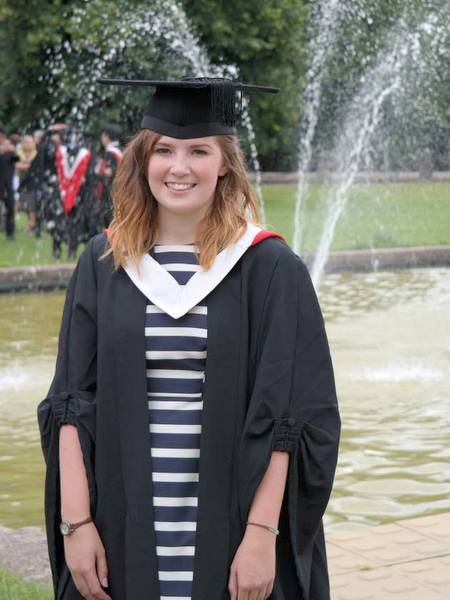I was diagnosed as dyslexic at 20 years old and in my final year at college.
I’ve always generally succeeded in education but struggled the more I progressed. That’s not exactly unusual. I had weaknesses like most people — spelling and math in particular — but my mom just made sure we worked extra hard on them.
I got into college to study the course I wanted, and I started off not doing as well as I thought I could so I pushed myself even further. But then I hit a wall. I kept getting the same grades and putting more and more time into exams and essays didn’t seem to be making a difference. During one exam, I panicked so much that I spent a half an hour trying to choose which question to answer. That had never happened before. This begged the question about why I couldn’t get past a certain grade. Why was I cracking under pressure like never before? My essays outshone my exams, which dragged down my score.

I began thinking about where I was going wrong. I couldn’t possibly accept that I’d just hit my limit, that my potential was reached and I couldn’t improve. I’d spoken to people with dyslexia, and I knew the general assumptions around it. I always assumed I wouldn’t have gotten the grades I had if I were dyslexic.
But in spite of this, I decided, in my first term of my final year, to have a dyslexia test because I could relate to being a terrible speller and sometimes my grammar and sentence structure was really confusing, but I wouldn’t notice it until someone pointed it out.
The test itself was impossibly hard, and at one point, I had tears in my eyes. But I understood that it’s meant to challenge you. We got to the end after about two hours of mental Olympics, and I was told I have mild dyslexia, which mainly revolves around my processing speed. What?
Essentially, my dyslexia symptoms come out when I’m under time pressure. I write slowly and need time to think otherwise things come out jumbled and my spelling is a mess. I read slowly, which I’d made up for my whole life by scan reading. That explains why I never used to remember much of the books I read. I can’t take written notes because I’m not fast enough, and my brain can’t work out sums without a lot of time and a pencil and paper. When the results came back, everything made sense.
But because I was always viewed as doing well in school, no one noticed. My potential is at one level, and then my achievement is lower than that despite still getting top grades.
My college made adjustments for my class assessments, and I felt so much better. I really started to understand my dyslexia, and I actually felt like I was able to get the most out of myself for the first time in higher education.
There are moments where I notice my dyslexia in everyday life, moments which I hadn’t even realized before my diagnosis. I’m sort of relieved now that there’s an explanation. For example, I make terrible errors and spelling mistakes in forms I’ve been given to fill out because I’m under pressure to complete them quickly. Sometimes, I get frustrated and feel cheated by my brain.
I have been through times where I’ve been angry that it took my own initiative to actually have a test at 20 years old. This could have been done ages ago, and I get frustrated that no one noticed it. I was getting good grades on average so no one looked more closely.
What I’ve experienced is there is a stigma to dyslexia. People think you can’t be dyslexic if you’ve achieved good grades or have done well academically, which is completely untrue. I feel guilty that I stayed quiet about it and was happy with the grades I got.
It’s quite strange for me. I didn’t grow up with dyslexia. Well I have, but I haven’t been aware of it. I’m trying to adapt and learn about it in my 20s when other people have grown up knowing. It’s really opening my eyes, but it’s also helping me to reach my potential. And everyone deserves the ability to do that.
The Mighty is asking the following: What’s one thing people might not know about your experience with disability, disease or mental illness, and what would you say to teach them? If you’d like to participate, please send a blog post to community@themighty.com. Please include a photo for the piece, a photo of yourself and 1-2 sentence bio. Check out our Submit a Story page for more about our submission guidelines.
